Aziz hits out at India’s divisive policy
PM’s adviser says Pakistan, Afghanistan conjoined twins, not easy to separate them.
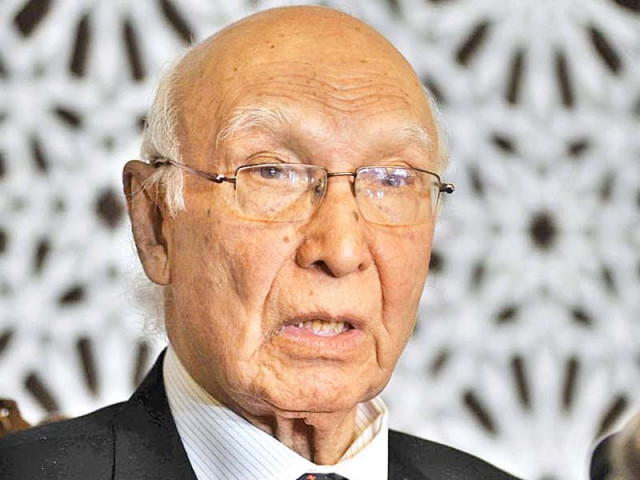
PM’s adviser says Pakistan, Afghanistan conjoined twins, not easy to separate them. PHOTO: AFP
“India’s attempt to drive a wedge between Pakistan and Afghanistan will not succeed,” Foreign Affairs Adviser Sartaj Aziz told a news conference after returning from Amritsar. “Pakistan and Afghanistan are conjoined twins, and it is not easy to separate them,” said Aziz who was not allowed to interact with Pakistani journalists on the sidelines of the two-day Heart of Asia conference.
Aziz, miffed at India’s bigoted approach vis-à-vis Pakistan, regretted that the Indians always blame Islamabad for anything that goes wrong anywhere in their country. “They [Indians] know what Pakistan is doing and has done to fight terrorism. They point accusatory fingers at us only to divert the world’s attention from Kashmir,” he said while referring to an insurrection triggered by the extrajudicial killing of a popular separatist in July.
“If Kashmir is not a problem, then why more than 700,000 Indian troops are deployed there? Why has the occupied valley been put on a standstill since July 8?” Indian security forces have used brute force to quell the uprising, killing dozens and wounding thousands of Kashmiri civilians.
Aziz said ‘anti-Pakistan sentiment’ would prevail in India in the next two months due to elections in crucial states where the Modi government was whipping up rhetoric. “We do not expect anti-Pakistani rhetoric to be toned down in the next two months.”

Aziz defended his participation in the Heart of Asia conference, saying the decision was taken to send out a message that bilateral issues would not affect multilateral forums. “Had I not gone there, they [Indians] would have said, ‘See, after the Saarc episode, we expelled them from here’,” he said while referring to the postponement of the 19th summit of Saarc in October. The summit was put off after India pulled out and its allies, Bangladesh and Afghanistan, followed suit.
The foreign policy wizard said the decision to fly to Amritsar on Saturday, a day before his schedule, was not linked to Modi’s dinner on Saturday night. “The decision was taken keeping in view the advice of the air traffic control that suggested expected fog on Sunday morning might hinder flight operations.”
Aziz clarified that there was no formal dialogue with any Indian official in Amritsar. “Even though I met Indian Prime Minister Narendra Modi, Finance Minister Arun Jaitley and National Security Advisor Ajit Doval and exchanged pleasantries, there was no formal bilateral meeting and nothing substantial was discussed.”
Aziz said the Indian media tried to create an impression that the inclusion of organisations like Lashkar-e-Taiba and Jaish-e-Mohammad in the Amritsar Declaration was something unusual.
He referred to the particular portion of the declaration where other organisations like ISIL/Daish, al Qaeda, Islamic Movement of Uzbekistan, East Turkistan Islamic Movement, TTP, Jamaatul Ahrar, Jundullah and others have also been mentioned. The declaration called for an immediate end to all forms of terrorism and its support.
Aziz said Pakistan had already revved up its counterterrorism drive as envisioned in the National Action Plan. “We are already doing much. The declaration does not call upon us to do something that is against our national agenda. We do not need to take pressure from anybody.”
Taking exception to Afghan President Ashraf Ghani’s tirade against Pakistan at the Heart of Asia, Aziz said it was ‘regrettable yet understandable’. “There is a growing anxiety [in Ghani administration]. The level of insurgency in Afghanistan has increased so has the anxiety. Since bomb blasts and violence occur frequently, so the anxiety is understandable.”
He said Pakistan threw its weight behind a politically driven settlement and not a military solution in Afghanistan.
“I told President Ghani that security issues would remain to be a problem until and unless an effective border management system is in place. We are ready to extend all possible cooperation. Pakistan’s commitment to not allowing the use of its soil against any country remains firms and it [should be reciprocated].”
During his Amritsar sojourn, Aziz also met Iranian, Turkmen and Chinese delegates and discussed prospects of regional cooperation.
Aziz said the Pakistani delegates and journalists faced strict restrictions and were not allowed to interact. However, he said there was no truth in reports that he had been made to wait for several minutes at the Indian airport for immigration clearance.
Published in The Express Tribune, December 5th, 2016.

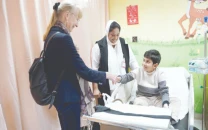
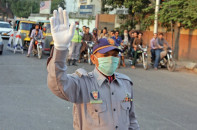
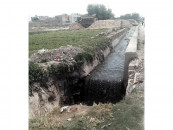
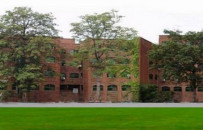

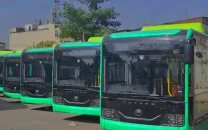












COMMENTS
Comments are moderated and generally will be posted if they are on-topic and not abusive.
For more information, please see our Comments FAQ